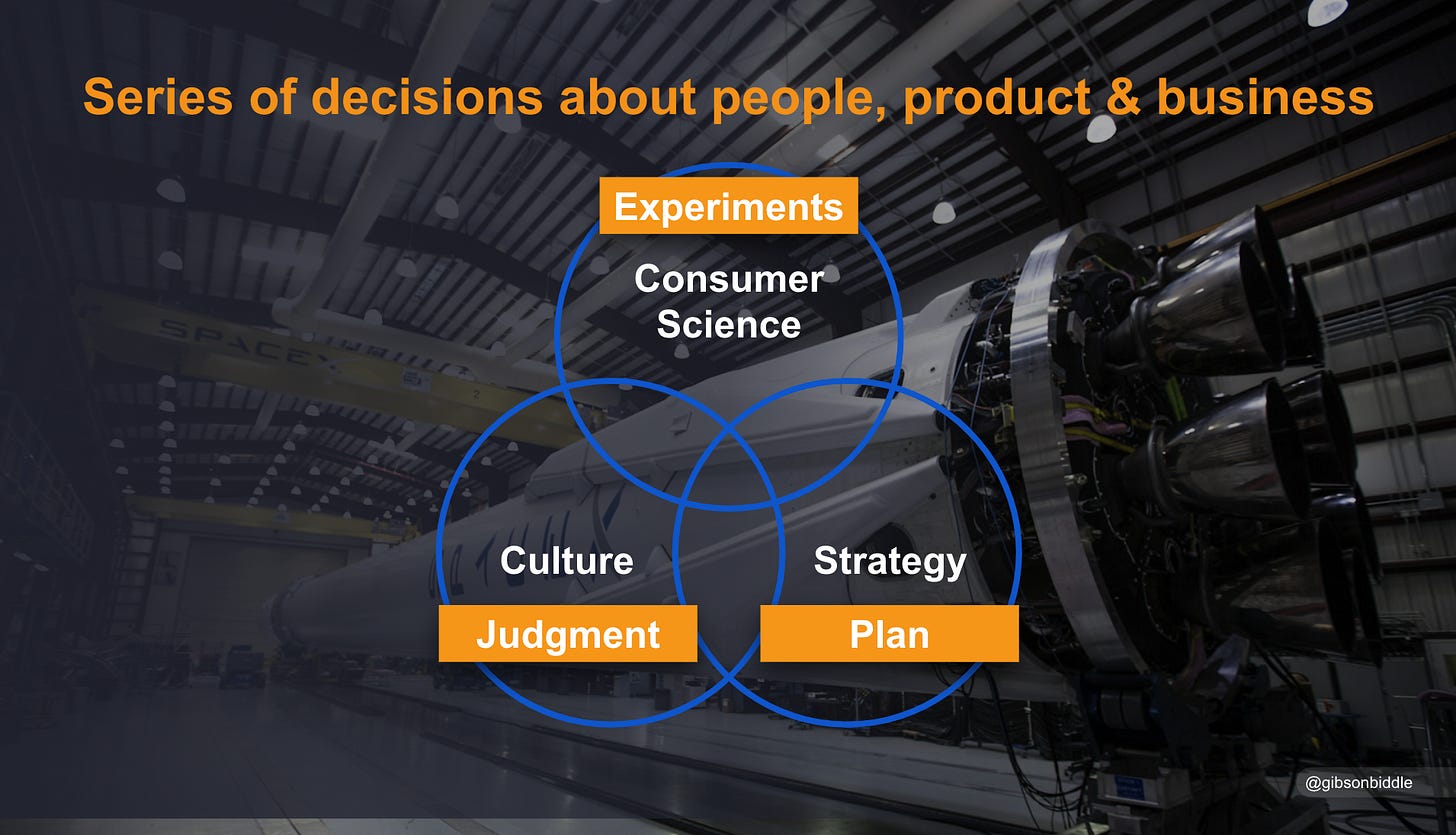How do you convince your CEO that culture is “money?”
Culture is much more than the platitudes on the laminated sheet near your water cooler. It helps companies to scale-- fast -- and gets focus on who you hire, fire, and promote.

In my work with product managers and startups, I focus on the intersection of culture, consumer science, and product strategy. Starting or growing a company requires a series of decisions that individuals make about people, products, and the business. Culture improves the speed/quality of these decisions and helps companies to scale without mind-numbing processes.
Culture, defined
Here’s my definition of company culture:
Culture outlines a set of values, skills, and behaviors you seek in employees. These values make it easier to isolate which employees to hire, fire, and promote.
The values are unique to each company, depending on its stage, mission, and category. They are not “one size fits all” and evolve as companies grow.
Culture codifies the answers to tough questions like, “To what degree do we embrace secrecy or transparency?” Or, “Do we believe in external justice — making the world a better place — or do we simply want to get it right within our company?”
Culture enables employees to make great decisions, sometimes without even talking to one another.
Here’s an example of how an individual at Netflix made a high-impact decision without talking to others. By 2018, Netflix had invested more than $500 million in “House of Cards.” That same year, however, Kevin Spacey— the lead actor in the series— was implicated in the sexual harassment of a teenage boy. Within twenty minutes, Netflix announced that it had canceled the series. One person — the same person who signed the series — made the decision based on Netflix’s “Inclusion” value, which encourages Netflix employees to “intervene if someone else is being marginalized.”
Culture + Strategy + Consumer Science
There are two other forces that help teams to make decisions: strategy and consumer science:
A strategy helps form hypotheses for how your company hopes to delight customers in hard-to-copy, margin-enhancing ways.
Consumer science acknowledges that many of these hypotheses will be wrong -- you need to experiment to discover what works.
In the context of these three forces, culture institutionalizes accumulated knowledge, given that few employees will remain at the company forever. These shared values help form high judgment individuals and are modified as the company learns and grows.
Culture helps companies scale— fast!
Culture is critical for scaling companies. It helps identify what types of employees to hire, fire, or promote. More importantly, it becomes an antidote to “process monkeys” who focus more on how companies make decisions than the quality of these decisions. The challenge of process-heavy companies: bright, highly creative individuals are allergic to rules. Plus, companies that depend on a playbook or directives from the exec team are caught flat-footed when industry shifts happen.
Think about Netflix’s twenty-year history. The company evolved from DVD by mail, to streaming, to international expansion, to original content, and today it’s engaged in new experiments like Black Mirror’s “Bandersnatch” interactive story-telling. Netflix is in its fifth phase as a company and has learned new skills, talents, and expertise along the way. To do this, they enabled a culture of freedom and responsibility that keeps raising the bar on its new hires. Today it aspires to build a “dream team” where the best possible person fills each company role. This talent density enables the company to navigate step-function change.
Netflix started as a DVD by mail company, and now they’re the world’s leader in original content. That’s a compelling argument for how culture is “money,” right? As companies scale, what’s a better alternative? A highly directive CEO? An exec team that barks out orders? A detailed rulebook for how employees make decisions? I prefer the focus on culture to create world-class teams and products that can navigate the inevitable challenges of scaling a company.
There’s a reason most CEOs are wary about culture
Most employee’s and CEO’s experience with culture sucks. “Rule-makers” from HR typically initiate the effort. This leads to a fuzzy document full of platitudes that don’t describe the company's real values-- which employees they hire, promote, and fire.
Culture has to be Defined, Edited, then Lived via a variety of mechanisms that make the values something much more than a laminated placard near the watercooler. Here’s a little teaser of how I think about this “DEL” model:
You can learn a lot more about this model by watching my “How Netflix Built A World-Class Culture” talk. Or, take a moment to look at these examples of how very different organizations articulate their culture:
Good luck with your conversation with the CEO! And if you’d like this newsletter to be delivered to your inbox each day, click the button below:
Thanks,
Gib
PS. Click here to give feedback on this essay. (It only takes one minute.)
PPS. Click the button below to ask and upvote questions:



